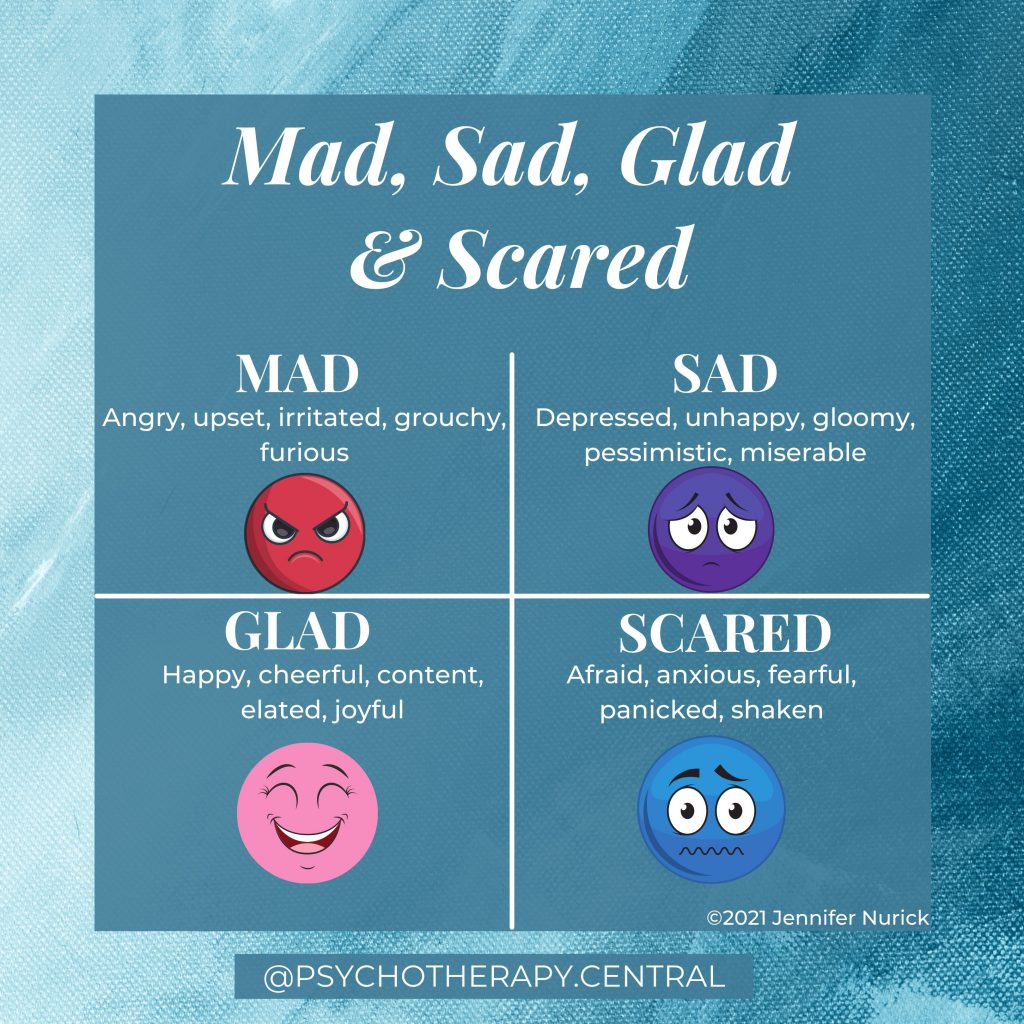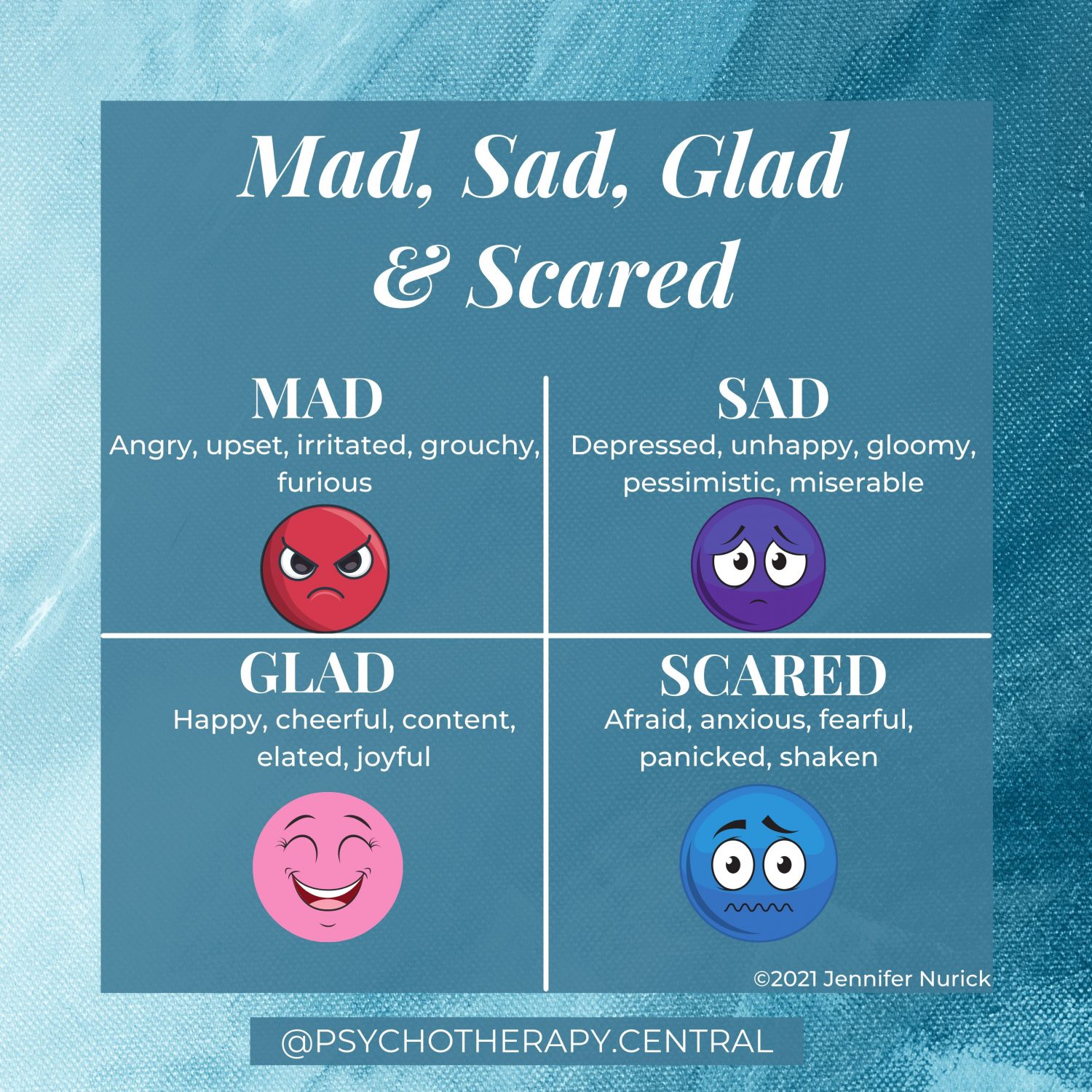The incredible shame and vulnerability researcher Brene Brown talks about the benefits of getting to know our emotions and not blocking any of them out, including the ‘bad’ ones. She says when we block the negative emotions, we also block the positive that we need to have a full range of emotions.
People tend to fall into one of two categories when it comes to emotions. Either they are disconnected from their feelings (think Ebenezer Scrooge in Dickens’ A Christmas Carol) who feels nothing when he observes others extreme poverty, or they feel overwhelmed by their emotions and powerless over them (think the archetypal Victorian fainting woman).
When under stress, it can be challenging to tune into your emotions’ nuances, so just thinking of these four basic emotions can be useful. When you are in an argument, which is your default emotion? This might be the emotion that was more acceptable in your childhood. Many women feel sad in the moment, only to realise later that they are actually angry (mad) under the sadness. Many men I work with find themselves expressing anger when under the anger is a deep well of sorrow.
Just naming the emotion you are feeling to yourself starts the process of ‘name and drain’. While we are running from it, it has power over us, but we shift the energy when we pause and name it. Remembering that this will pass, every emotion we have ever had eventually passes.
Which is your default emotion in a conflict? Mine is mad, but often when I tune in more deeply, it is sad. If you feel safe, let me know your default in the comments.
Much love on your healing journey
Jen

